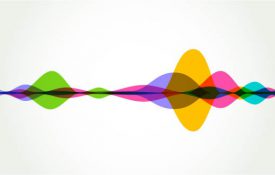-

Psychological Science and Epidemics: Voices of Experts
The science of psychology can help inform public debate and understand public behavior related to COVID-19.
-
A Cough, and Our Hearts Stop: Coping With Coronavirus Anxiety and Fear
We are you. We are mothers, daughters, students and teachers. Yet we are also clinical psychologists who spend our days researching and treating pathological anxiety and fear. With the near constant news of the spreading coronavirus and fatalities, our personal and professional identities have dramatically collided, forcing us to consciously live consistent with the scientific principles we know well. ... In Seattle’s elevated threat environment, anxiety processes are playing out in our daily lives.
-

New Special Collections: New Perspectives on Psychological Science
Four independently submitted journal articles (preface by an outstanding early-career scholar) explore the importance of contextualizing morality in order to better understand moral behaviors and change.
-
To Survive the Coronavirus, the United States Must Tighten Up
US officials have been implementing a wide range of public health measures to mitigate the damage being wrought by the deadly new coronavirus. While social distancing, better hygiene, and flat-out travel bans may help, we have yet to address one of our biggest vulnerabilities: America’s traditionally loose culture. The decentralized, defiant, do-it-your-own-way norms that make our country so entrepreneurial and creative also deepen our danger during the coronavirus crisis. To fight this pandemic, we can’t just shift our resources; we have to shift our cultural patterns as well. Already we can see signs of panic and egocentric behavior.
-

New Content From Current Directions in Psychological Science
A sample of articles on intelligence and mental speed, the link between sexualization and objectification, socioeconomic disparities in education, education and reasoning ability, the connection between social status and health, collective emotions, and the risk for depression.
-
The Psychology of Coronavirus Fear—and How to Manage It
Let’s start with the obvious: Covid-19, the disease caused by a new strain of coronavirus, is scary. It’s spreading fast, there is currently no vaccine or preventative treatment for it, and we don’t know how deadly it actually is. Under these circumstances, it’s understandable that people would be frightened. But some of the public anxiety exhibited in the past weeks has been disproportionate to the risk posed by Covid-19 as we understand it today. Globally, about 3,500 people have died of the disease since the outbreak began in the fall of 2019.

